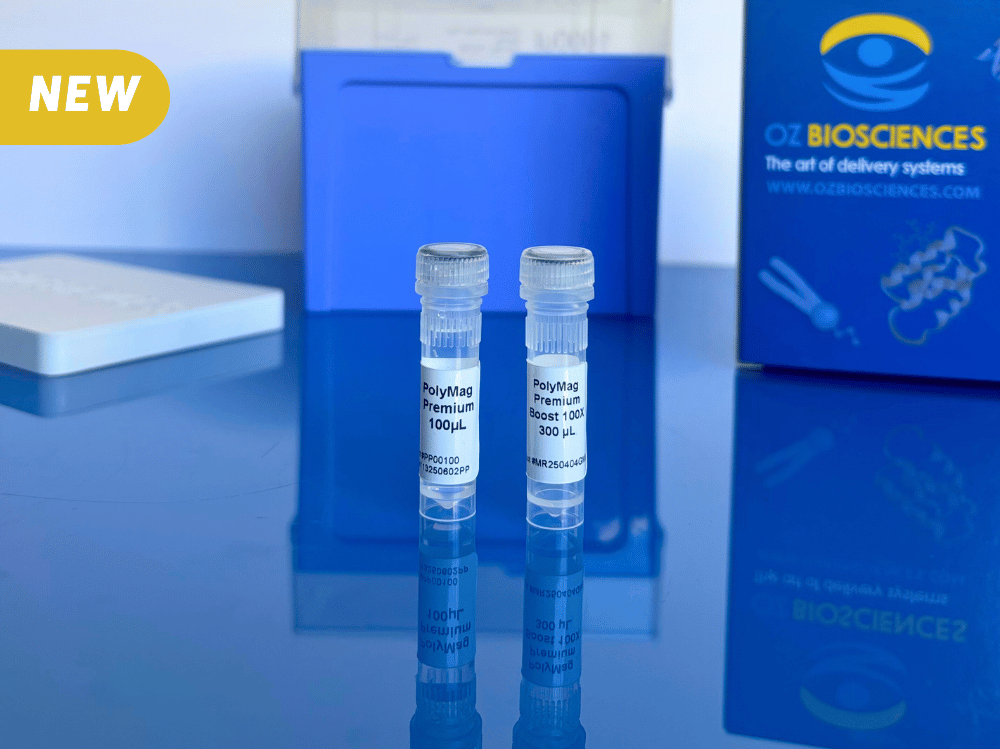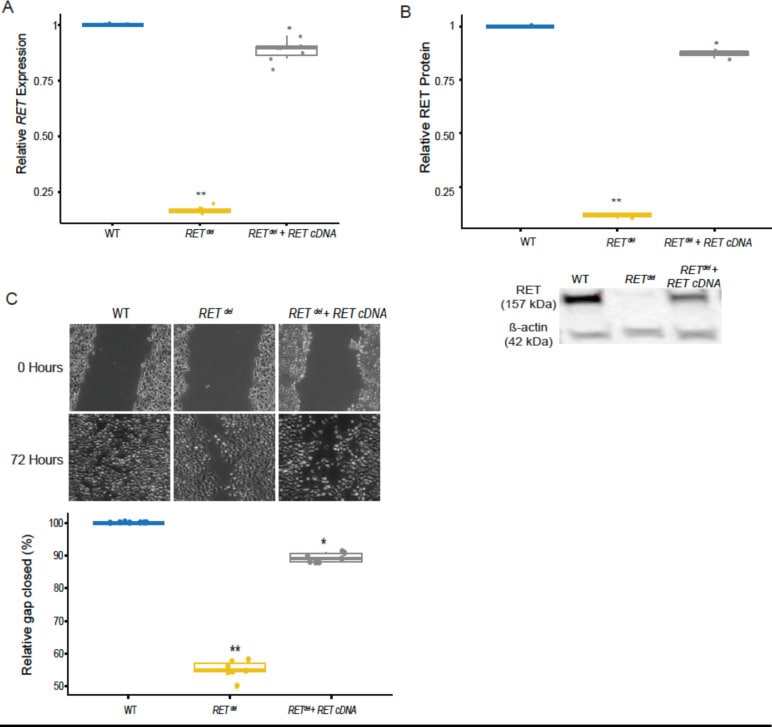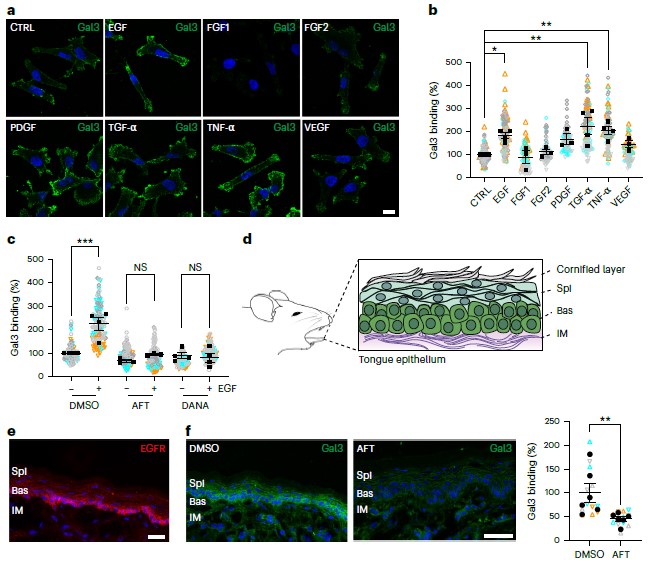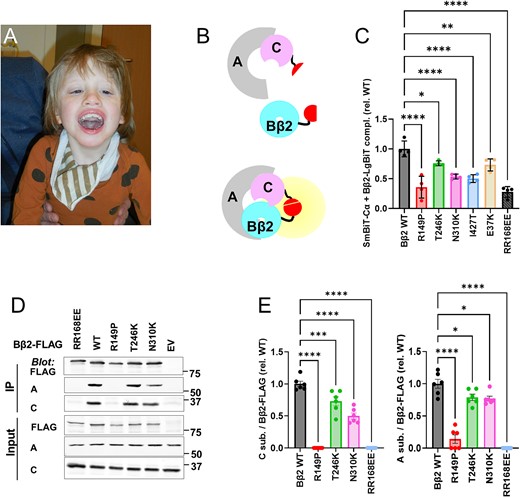BLOG > Publications & Citations > Aberrant phase separation of two PKA RIβ neurological disorder mutants
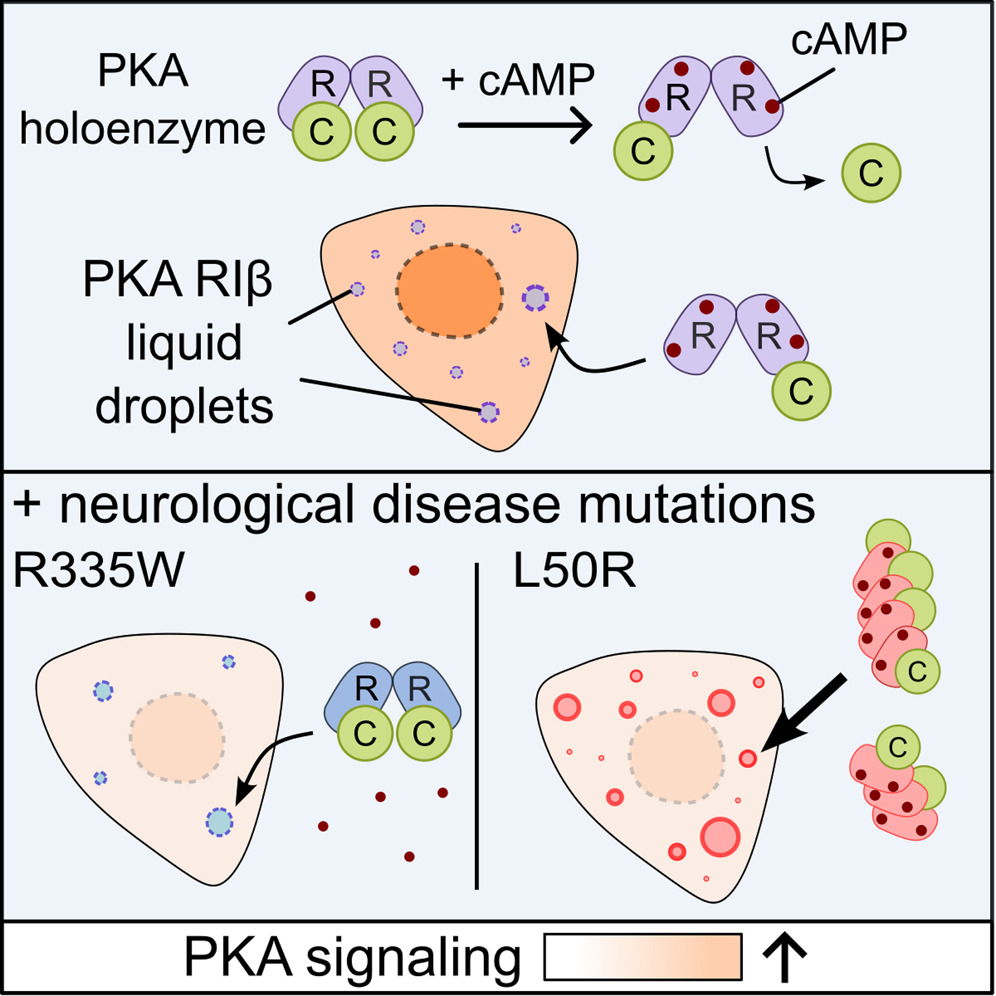
Authors: Pool, Emily H. et al.
Source: Cell Reports, Volume 44, Issue 6, 115797
We are thrilled to share insights from a recent study entitled "Aberrant phase separation of two PKA RIβ neurological disorder mutants leads to mechanistically distinct signaling deficits" published in Cell Reports by Emily H. Pool et al:
"Spatiotemporal regulation of key-node signaling molecules, such as 3′,5′-cyclic adenosine monophosphate (cAMP)-dependent protein kinase (PKA), is critical for normal cell physiology and susceptible to dysregulation in disease. Liquid-liquid phase separation (LLPS) is broadly recognized as a fundamental component of signal regulation, yet the connections between physiological and disease-linked biomolecular condensates are not well understood. Here, we show that an understudied, brain-specific PKA regulatory subunit, RIβ, forms biomolecular condensates with distinct features from the ubiquitous isoform, RIα. We demonstrate that two RIβ mutants linked to neurodegenerative (L50R) or neurodevelopmental (R335W) pathologies produce aberrant condensates that trap the PKA catalytic subunit within a gel-like matrix or cAMP-insensitive holoenzyme complex, respectively. RIβL50R condensates, in particular, lead to disrupted spatiotemporal control of PKA signaling and diminished PKA activity, resulting in phenotypic hallmarks of neurodegeneration. Our work highlights the functional importance of biomolecular condensates and the critical link between dysregulated LLPS and neurological disorders."
Congratulations to all authors for this great article.
Our NeuroMag transfection reagent was used to transfect DIV2 primary neuronal cultures with DNA.
Read the article See our NeuroMag

